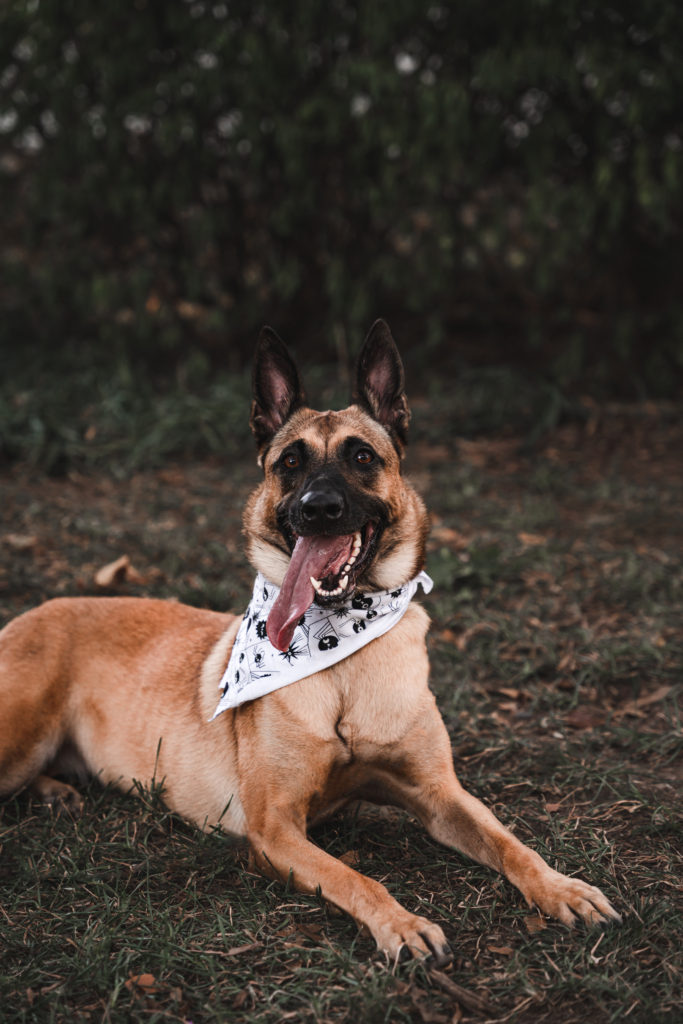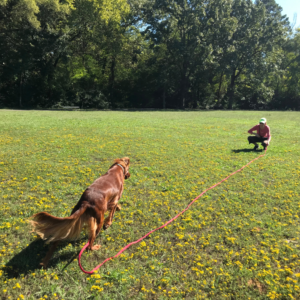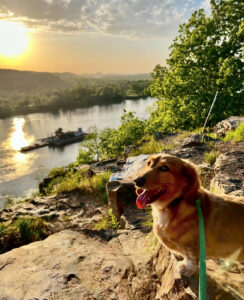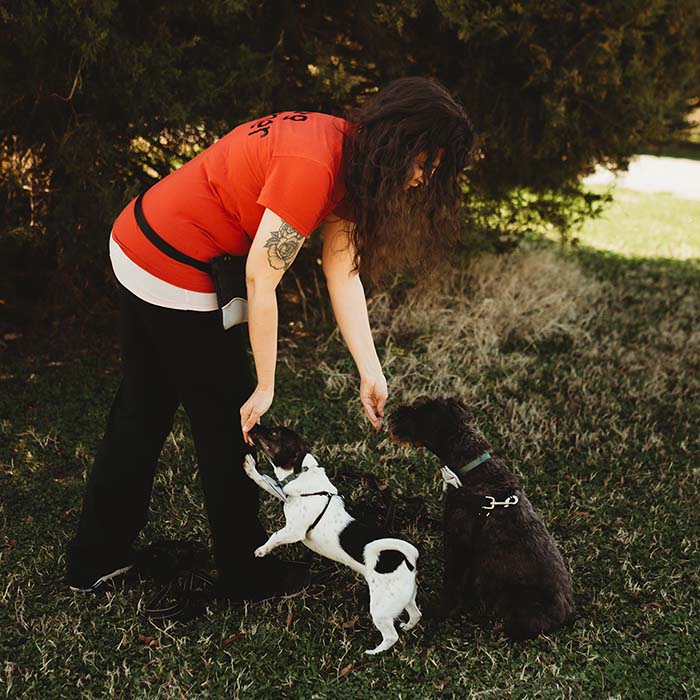It all happened too quickly. One second, I was bending over to put a harness on Rosie, and immediately after, I was ugly crying, stars floating above my head like I was a cartoon character, blood dripping from my lip.
It was the second time I’d gotten a good knock to the face by a dog. The first was Margo, a 130-lb Great Dane. We used slip leads on the farm much like shelters do, to decrease flight risk and make kennel exits and returns a lot easier, and when dogs were incredible pullers, like Margo, another trainer showed me an easy way to make the slip into a harness, to reduce the pressure of the pull from their neck and my arm. The issue was you had to get close to the dog to do it, and Margo was excited to get outside. She bounded up, directly from the ground into my face, and I saw stars as I scrambled to catch myself on something before I went down. My lip ballooned quickly, but no blood.
I wish I could say I stayed calm after Rosie’s head slammed against my face, but I didn’t. I cursed and threw some stuffed animals across the room, then took some much-needed space by myself in the bathroom to calm down.
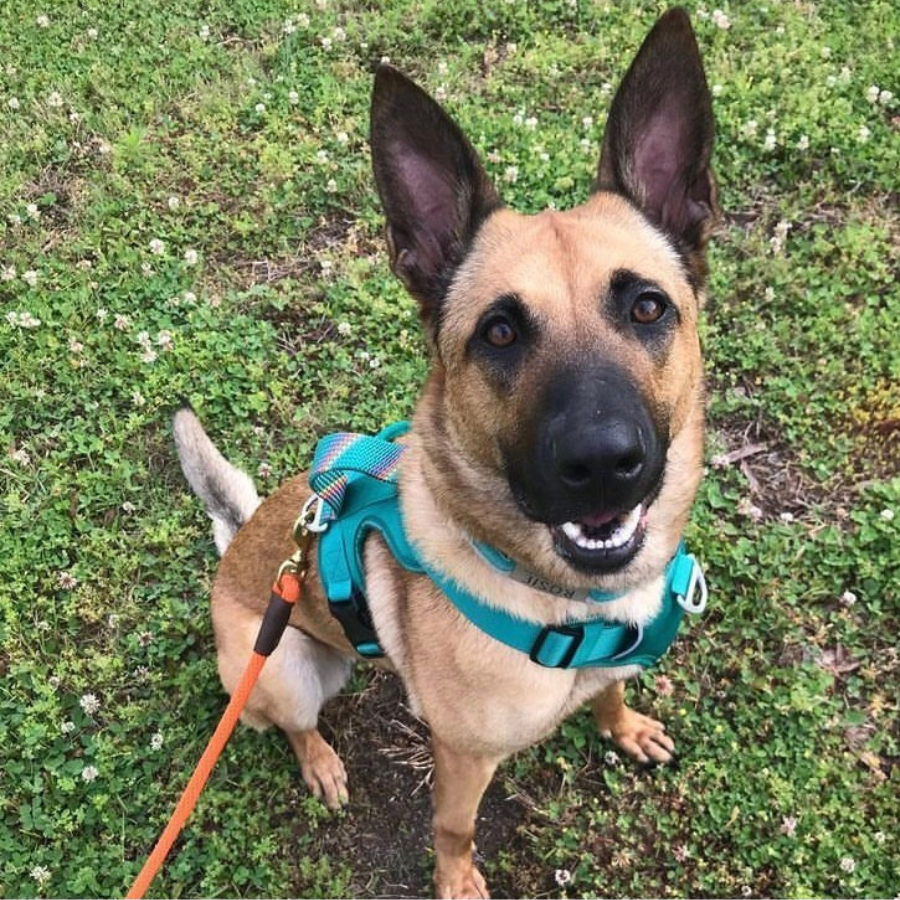
I felt a bit betrayed.
I’d taken in this dog, changed my entire life for her, including my work schedule, hired a trainer to help me, reached out to everyone I could think of who might have insight and recommendations.
And this wasn’t even the first time she’d accidentally hurt me.
Rosie loves to tug, and I would see what our limits were when I first brought her home in April. She seemed to have this need to see how close she could get her teeth to my hand, one night dragging a tooth down the middle of a finger, scraping off a long strip of skin.
Holy hell.
I was lucky then, too. Her teeth mean business, and if this dog meant to hurt me, she’d make little work of me in a matter of seconds.
I saw that with my other two littles, too. Rosie has an insane prey drive, focusing mainly on cats, even shadow cut outs that my neighbor put up for Halloween. She’s interested in squirrels, and she can see and watch people hundreds of yards away.
So if she wanted to hurt Jeeves or Lexi, she could. Any time she has, it’s also been on accident, like stepping on Lexi when Lexi has burrowed underneath a blanket on the bed.
The biggest thing I have to watch out with her is redirection. If I try to grab her harness or collar while she’s reacting, she’ll redirect, but softly, spinning around to place her mouth on my hand but not biting down. I learned to use a pillow or blanket quickly, regardless.
But the rage bubbles up now and then. Like when she’s running up the stairs and her nails catch the top of my foot.
Good lord.
Rosie has taught me a whole lot about patience and feeling feelings without acting on them and getting creative about solutions.
I like to talk about embarrassment and shame and anger and rage because I feel all of those feelings, too, with my dogs. When my dog makes a poor choice when we’re on a walk and people are watching, I feel like the most unskilled dog trainer to ever train. But those moments are just moments, and things just happen sometimes.
It’s okay to feel the rage, take a moment to simmer, and then figure out how to move forward without throwing the stuffed animals or yelling. And if getting help from someone else can make it easier, then do that, which is what I did as well.
I hired Cathy Madson to go over a plan and get an outside perspective because I’d take Rosie on a 40-minute decompression walk, and I’d get home with her, and the dog would still be wound up and overstimulated. Cathy recommended shorter, more frequent walks. That suggestion made a world of difference, including impacting the severity of Rosie’s reactivity.
Amazing.
Sometimes we’re just too close and we’re not sure what to do.
Sometimes we’re doing too much.
It’s so hard to hang a picture when you’ve got to hold it up, too, and there’s nothing wrong with getting another person to take a look. We can’t think of all the things on our own. “Why didn’t I think of that?” is a common thing my clients say, for good reason, and something I absolutely said to Cathy, as well.
Of course, learning to manage emotions now with my dogs would have been a lot easier if I’d learned how to do that as a kid. I talk here on my writing Substack about growing up in a cult and how that impacted my dog training business.
How do you manage your emotions when your dogs are frustrating or you’re feeling overwhelmed?

